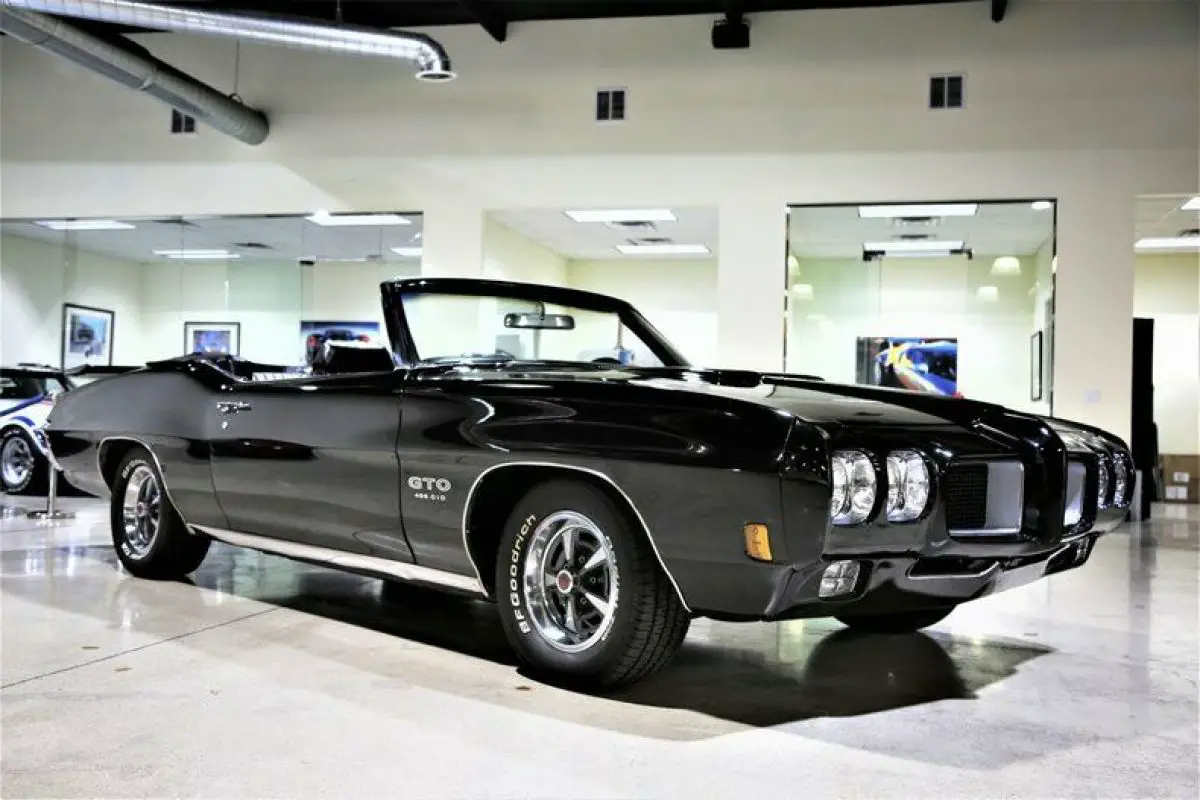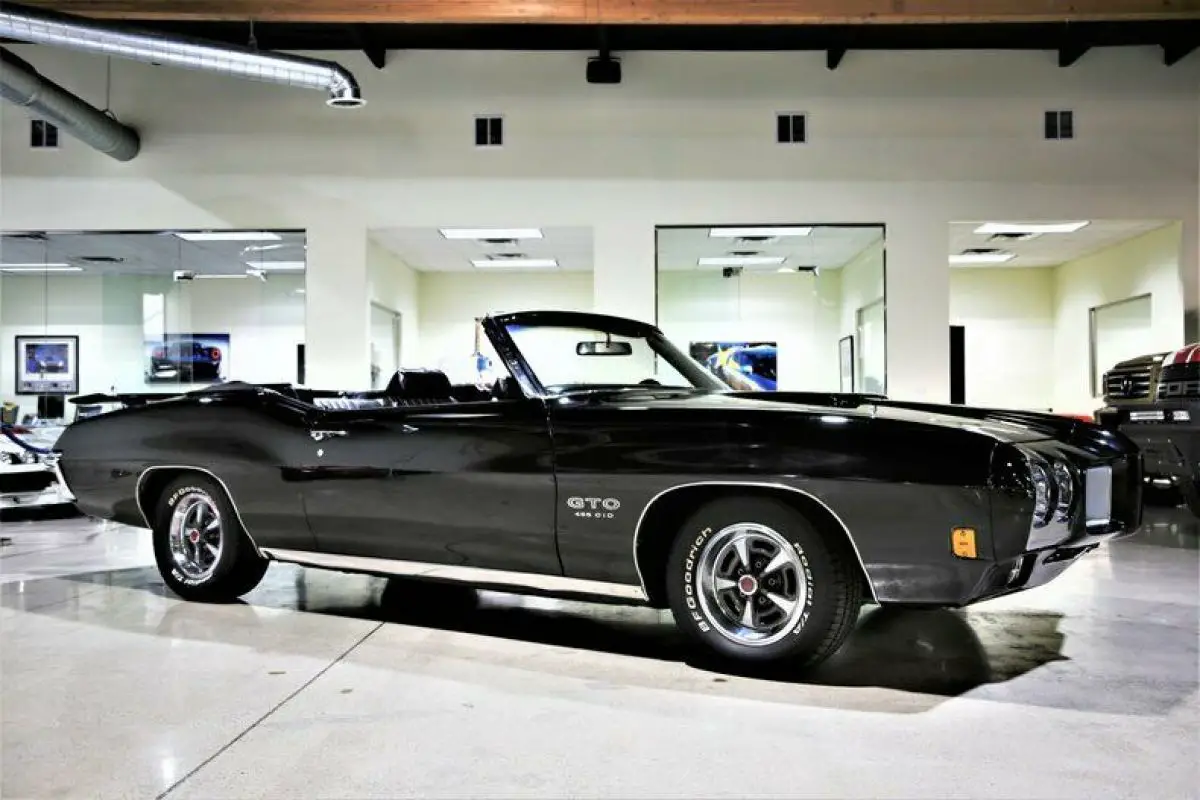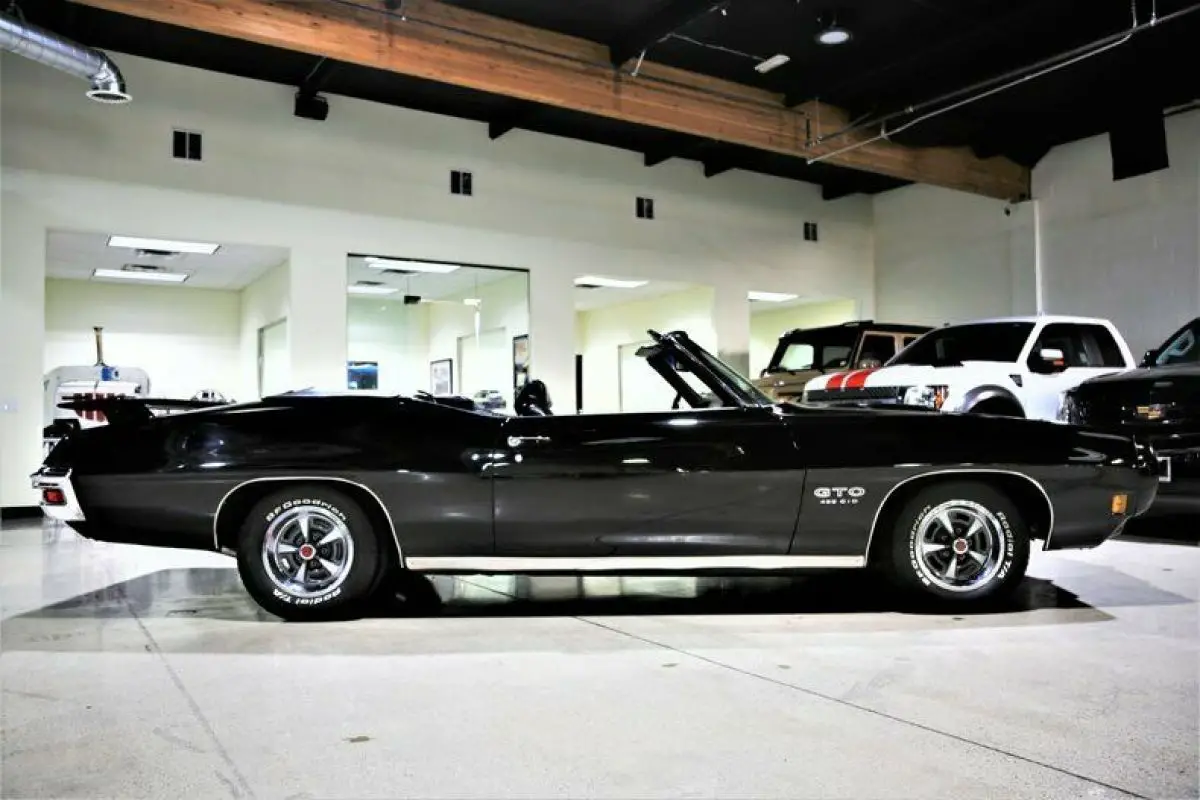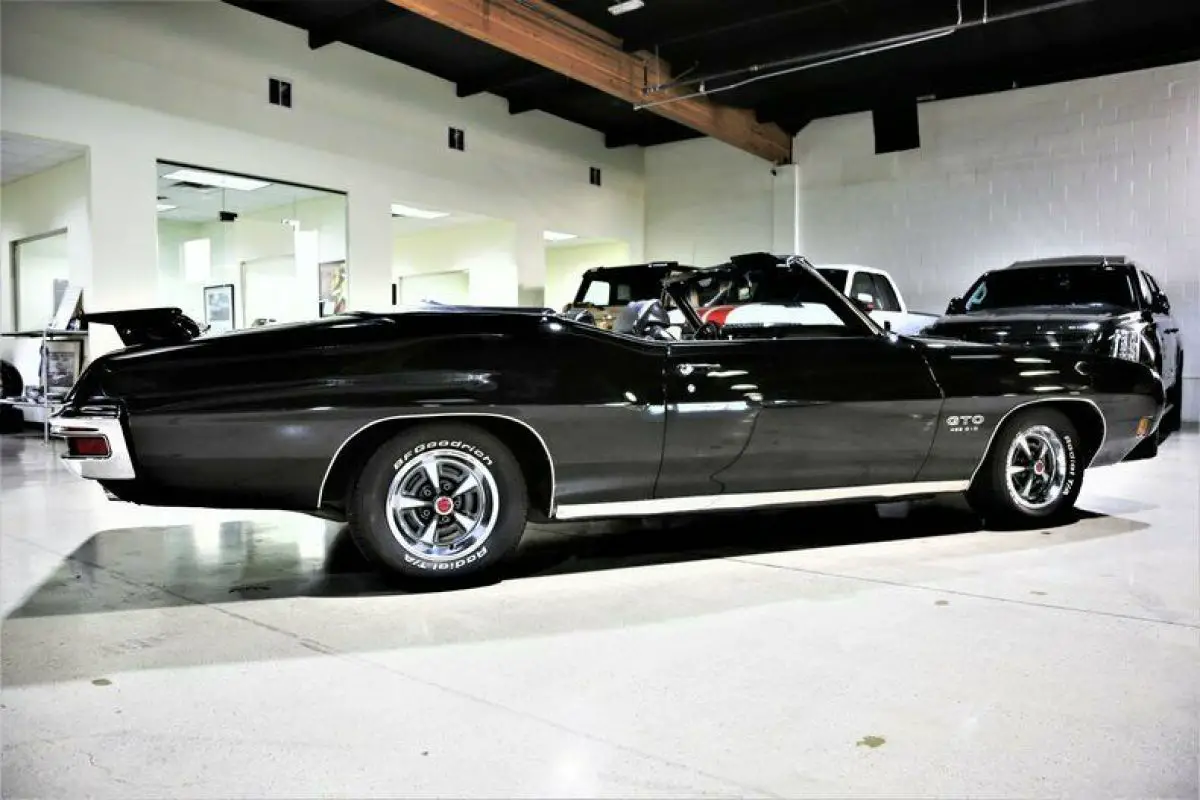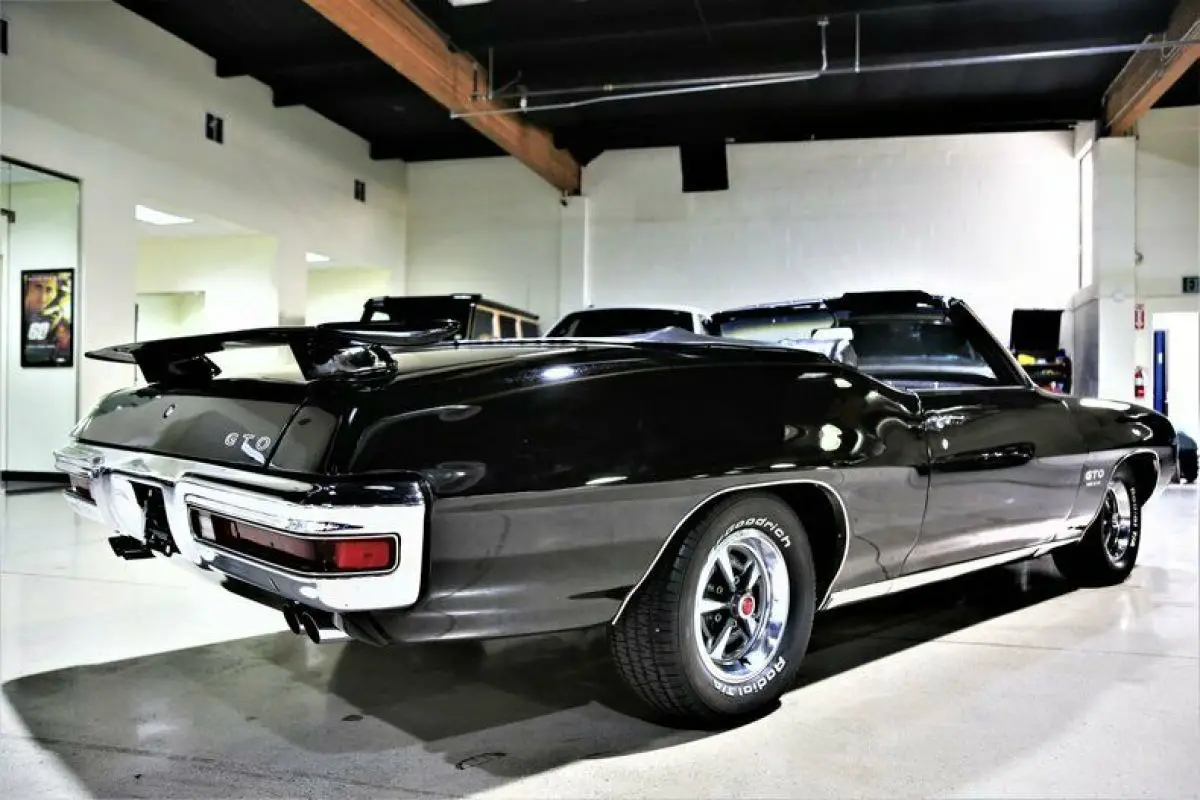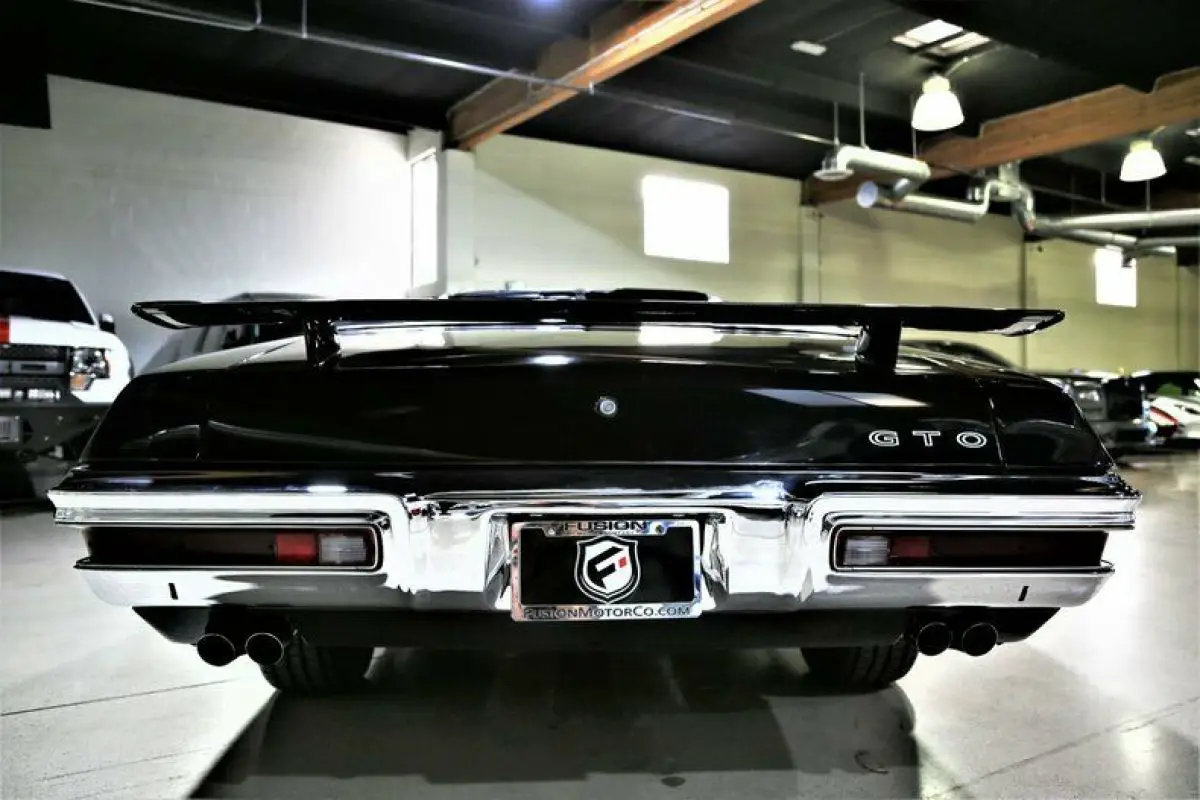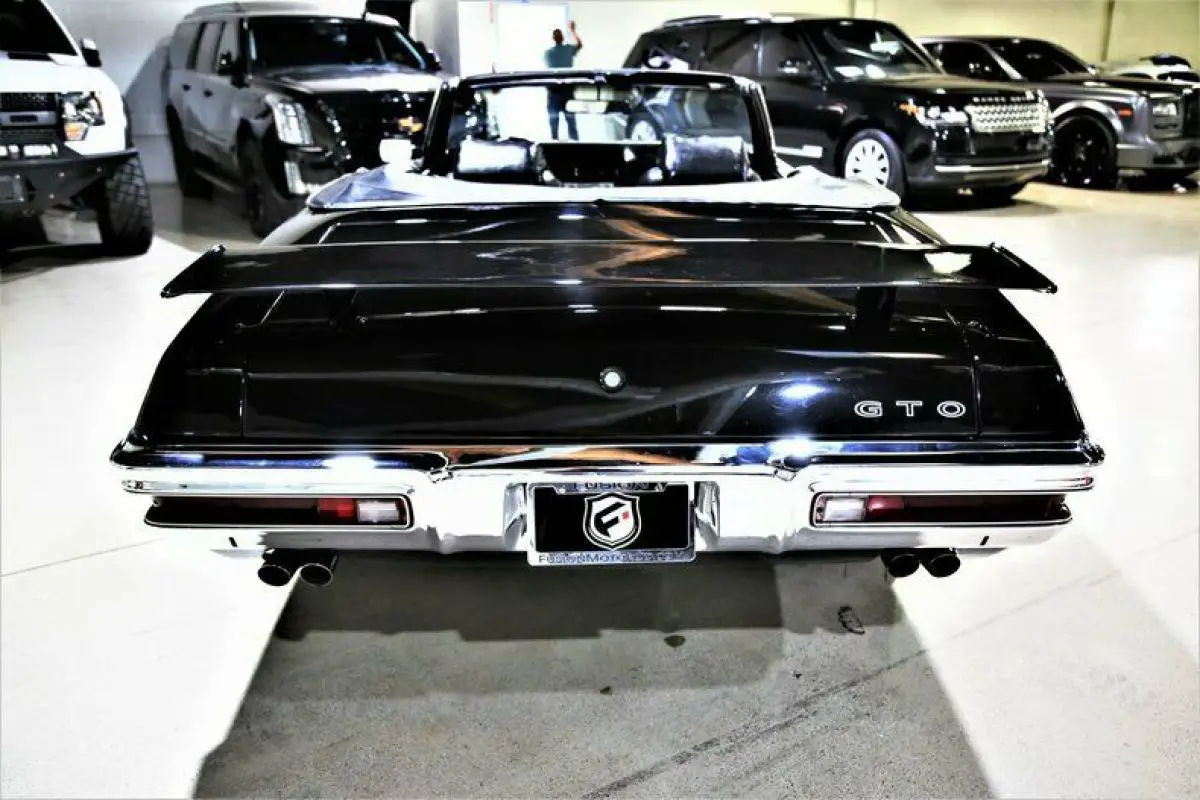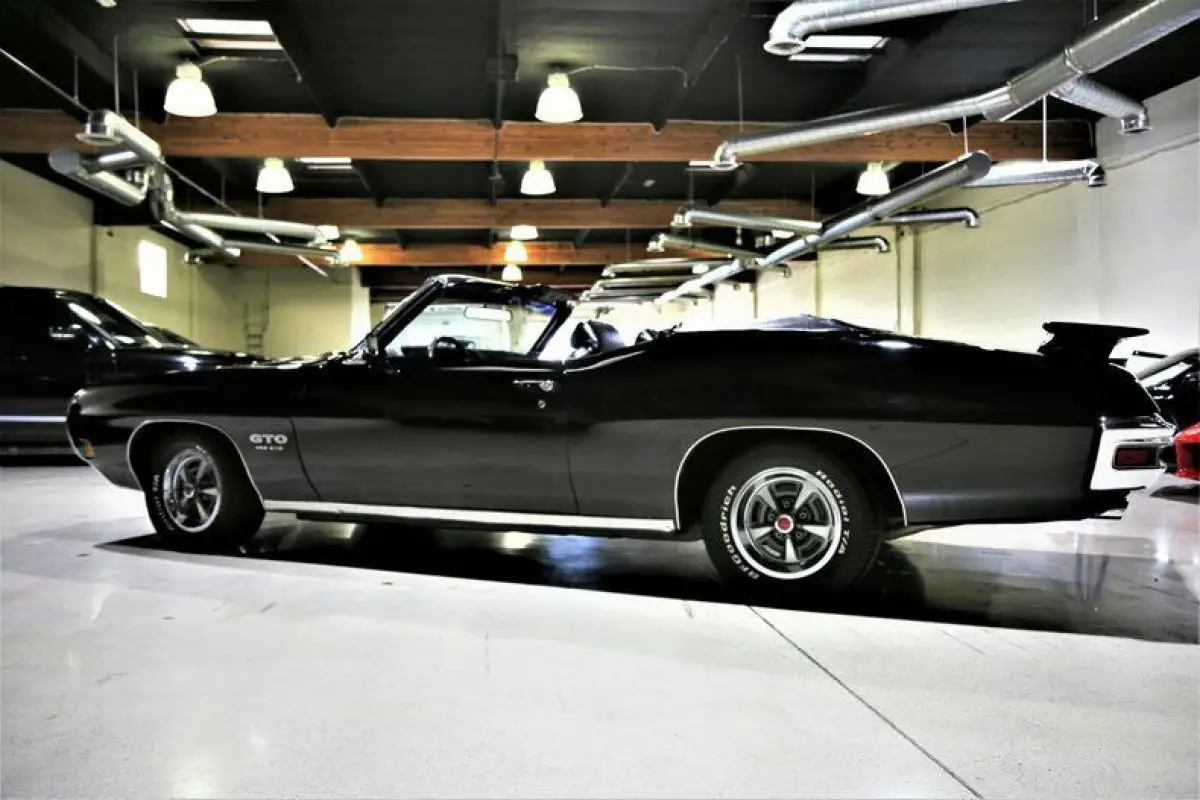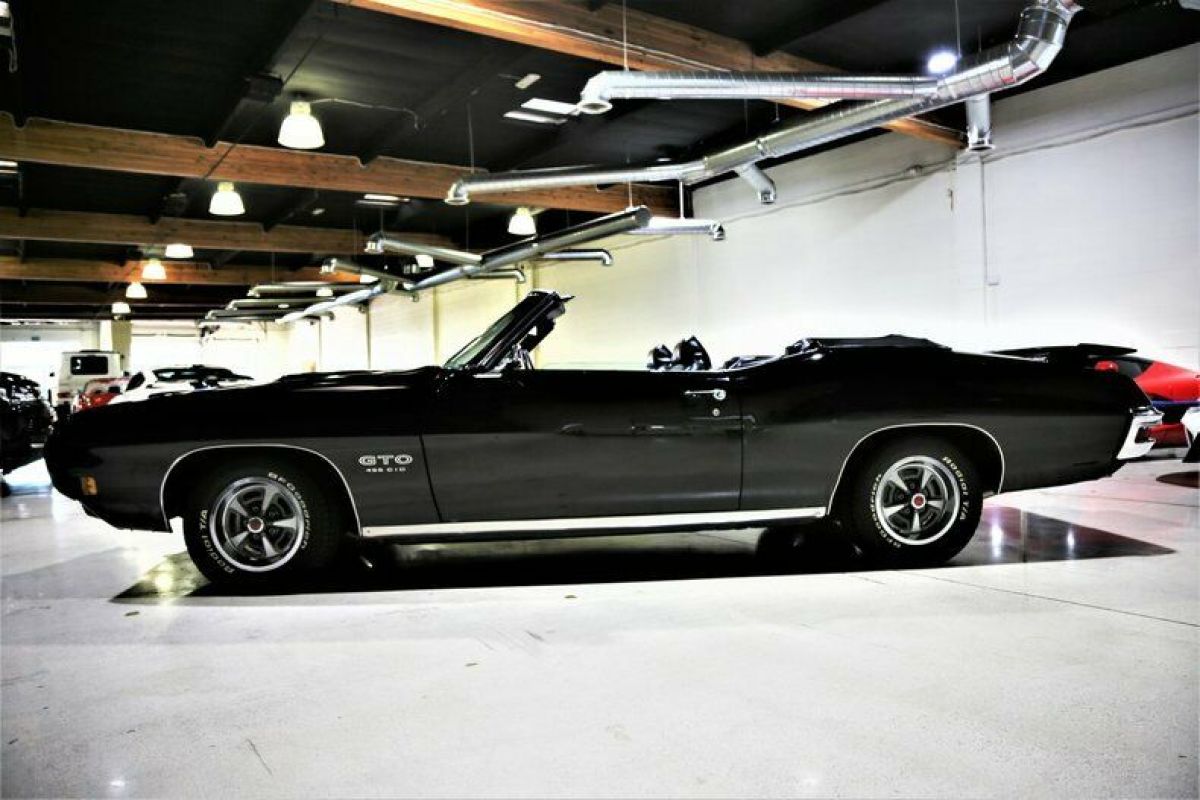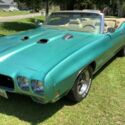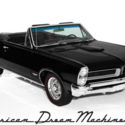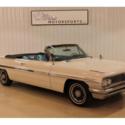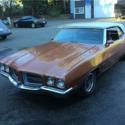1970 Pontiac GTO CONVERTIBLE 82244 Miles Black Convertible 455 HO V8 Automatic
| Make: | Pontiac |
| Model: | GTO |
| SubModel: | CONVERTIBLE |
| Type: | Convertible |
| Trim: | CONVERTIBLE |
| Year: | 1970 |
| Mileage: | 82244 |
| VIN: | 242670Z138988 |
| Color: | Black |
| Engine: | 455 HO V8 |
| Fuel: | Gasoline |
| Transmission: | Automatic |
| Drive type: | -- |
| Interior color: | Black |
| Vehicle Title: | Clear |
1970 Pontiac GTO CONVERTIBLE Additional Info:
The muscle car that started it all! The GTO is unmistakably pure muscle and this Factory Triple Black 455 does not disappoint.Only 399 Convertible GTO's were built in 1970 and this is 1 of 241 with the Automatic Transmission. Fully restored a few years ago, this numbers matching GTO features the vaunted 455 CI V8 with a tire shredding 500 ft-lbs of torque.
Desirable Factory Options include Variable Power Steering, Power Disc Brakes, Turbo 400 Hydramatic and Air Conditioning making this GOAT incredible to drive.
Great lease rates and Financing also available on any of our inventory!
Buy Sell Trade Consignments Welcome!
Please email or call 1-818-773-8181
About the GTO:
The Pontiac GTO is an automobile that was manufactured from 1964 to 1974, and by GM's subsidiary Holden in Australia from the 2004 to 2006 model years.
The first generation of the GTO was the first muscle car produced in the 1960s and the 1970s. The Pontiac GTO is considered by some to have started the trend with all four domestic automakers offering a variety of competing models.
The GTO was selected as the Motor Trend Car of the Year in 1968.
In early 1963, General Motors' management banned divisions from involvement in auto racing. This followed the 1957 voluntary ban on automobile racing that was instituted by the Automobile Manufacturers Association. By the early 1960s, Pontiac's advertising and marketing approach was heavily based on performance. With GM's ban on factory-sponsored racing, Pontiac's managers began to emphasize street performance.
In his autobiography Glory Days, Pontiac chief marketing manager Jim Wangers, who worked for the division's contract advertising and public relations agency, states that John DeLorean, Bill Collins, and Russ Gee were responsible for the GTO's creation.
The GTO disregarded GM's policy limiting the A-body intermediate line to a maximum engine displacement of 330 cu in (5.4 L). But the development team discovered a loophole in the policy which does not restrict large engines to be offered as an option.
By promoting the big-engine option as a special high-performance model, they could appeal to the speed-minded youth market (which had also been recognized by Ford Motor Company's Lee Iacocca, who was at that time preparing the sporty Ford Mustang variant of the second generation Ford Falcon compact).
The name, which was DeLorean's idea, was inspired by the Ferrari 250 GTO, the successful race car. It is an Italian abbreviation for Gran Turismo Omologato ("grand tourer homologated"), which means officially certified for racing in the grand tourer class. In reality, however, the Pontiac GTO was never really a certified Grand Tourer race car. Internally, it was initially called the "Grand Tempest Option" The GTO is one of the fastest cars ever manufactured by Pontiac.
The Tempest model line received another facelift for the 1970 model year. Hidden headlights were deleted in favor of four exposed round headlamps outboard of narrower grille openings. The nose retained the protruding vertical prow theme, although it was less prominent. While the standard Tempest and LeMans had chrome grilles, the GTO retained the Endura urethane cover around the headlamps and grille.
The suspension was upgraded with the addition of a rear anti-roll bar, essentially the same bar as used on the Oldsmobile 442 and Buick Gran Sport. The front anti-roll bar was slightly stiffer. The result was a useful reduction in body lean in turns and a modest reduction of understeer.
Another handling-related improvement was optional variable-ratio power steering. Rather than a fixed ratio of 17.5:1, requiring four turns lock-to-lock, the new system varied its ratio from 14.6:1 to 18.9:1, needing 3.5 turns lock-to-lock. Turning diameter was reduced from 40.9 feet to 37.4 feet.
A new option was Pontiac's 455 HO engine, available now that GM had rescinded its earlier ban on intermediates with engines larger than 400 HO. The 455, a long-stroke engine also available in the full-size Pontiac line as well as the Grand Prix, was dubiously rated by Pontiac as only moderately stronger than the base 350 hp 400 CID and less powerful than the 366 hp Ram Air III. The 455 was rated at 360HP at 4,300 rpm. Its advantage was torque: 500 lb·ft at 2,700 rpm. A functional Ram Air scoop was available.
Car and Driver tested a heavily optioned 455, with a four-speed transmission and 3.31 axle and recorded a quarter mile time of 15.0 seconds with a trap speed of 96.5 mph. Car Life test car had the Turbo-Hydramatic 455 with a 3.55 rear differential, clocked 14.76 seconds quarter mile time at 95.94 mph, with an identical 6.6 second 0–60 mph acceleration time. Both were about 3 mph slower than a Ram Air III 400 four-speed, although considerably less temperamental: the Ram Air engine idled roughly and was difficult to drive at low speeds.
